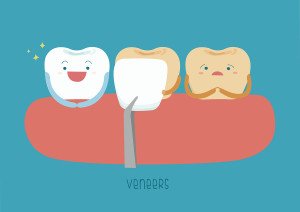Why Should You Try Dental Bonding?
 A dental bonding is what you call a procedure where you coat some of your teeth – usually the ones up front – with a special composite resin that hardens quickly under a special light and then lasts for up to ten years if you treat it right. Alternately, you could get a porcelain veneer which is more expensive but also more durable. But either way, why do people bother going to their dentists for this sort of procedure?
A dental bonding is what you call a procedure where you coat some of your teeth – usually the ones up front – with a special composite resin that hardens quickly under a special light and then lasts for up to ten years if you treat it right. Alternately, you could get a porcelain veneer which is more expensive but also more durable. But either way, why do people bother going to their dentists for this sort of procedure?
Cosmetics
If your teeth are stained to the point where whitening doesn’t seem to help or wears off too quickly, adding a layer of bonded composite could give your smile a new lease on life. It’s worth noting, however, that the composite resin is also capable of being stained, which means that you can’t keep your smile white if you carry on with drinking dark, acidic liquids and smoking.
Bonding resin can also change the shape of your teeth to eliminate gaps and otherwise look straighter and neater. If you don’t need braces except for cosmetic reasons, dental bonding is a much cheaper alternative.
Repairs
If your teeth are worn down or chipped, you can use a dental bonding to repair the damaged areas without having to pay for a more expensive procedure like a crown replacement or a tooth extraction followed by either dentures or a dental implant.
Protection
When you coat the outer layer of your teeth with bonding resin, you are quite obviously protecting them from the sort of damage which can eat away at your enamel. This means that dental bonding is also a useful way to protect decaying or otherwise weakening teeth without having to replace them entirely.
However, dental bonding does have a couple downsides. First, the resin is ultimately weaker than your teeth, which means that everything you ought to avoid doing to keep your teeth healthy and strong goes double when you have a dental bonding. A porcelain veneer is stronger, but even porcelain wears away eventually. Also, the dentist has to etch your teeth before applying a dental bonding or a veneer, which means your teeth will be weaker than when you started once the application wears off.
Not everyone needs to get a dental bonding or a veneer – plenty of smiles are good enough to go without. For those that do need a little help, however, it has an excellent value considering everything it can do.